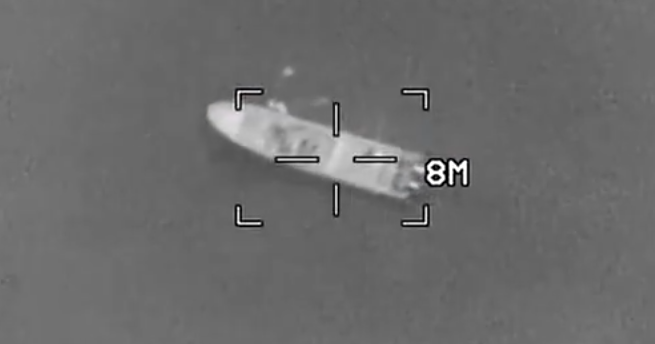Transcript: Scott Gottlieb discusses coronavirus on "Face the Nation," November 1, 2020
The following is a transcript of an interview with former FDA Commissioner Scott Gottlieb that aired November 1, 2020, on "Face the Nation."
MARGARET BRENNAN: We turn now to former FDA commissioner Dr. Scott Gottlieb, and we want to thank you for being here in person. You've been tested. I've been tested. You're at a distance, so hopefully you approve. I haven't seen you in person since- since mid-March, but things haven't gotten better. In fact, they seem to be getting worse and getting- accelerating in the infection rate this week alone. I mean, the numbers are pretty staggering. The president continues to say we're rounding the corner. That's just not factually accurate.
DR. SCOTT GOTTLIEB: No, things are getting worse around the country. I think Thanksgiving is really going to be an inflection point. I think December is probably going to be our toughest month. But when you look at what's happening in states right now, you're seeing accelerating spread. We're right at the beginning of what looks like exponential growth in a lot of states, the Midwest, the Great Lakes region, even states like Texas, where you see 6,000 cases, Illinois, 8,000 cases, Florida 5,000 cases, Wisconsin 5,000 cases reported Friday. These are very worrisome trends. There are about 23 states right now that are accelerating the spread. Right now, there's- the positivity rate is above 10% in 15 states. And all the states have an R above one, which means that they're an expanding epidemic right now. So this is very worrisome as we head into the winter.
MARGARET BRENNAN: Actually, that was acknowledged in a pretty frank interview by Dr. Fauci with The Washington Post that published yes- yesterday. He said neither he nor Dr. Birx from the Task Force have briefed the president in quite some time. He said that's because the White House didn't like the news. They needed to have a medical message that was essentially consistent with what they were saying. That's pretty flat out saying that medical information and the public's health is being played with for political purposes.
DR. GOTTLIEB: Well--
MARGARET BRENNAN: Do you agree with that?
DR. GOTTLIEB: Well, look, I think the facts are going to overtake any political dialogue very quickly. I think as we get into the next two or three weeks, it's going to be unmistakable what's happening around the country. And we're going to have to start taking tough steps. I don't think we're going to lock down like Europe is right now. And Europe has a very dense epidemic. There's a very worrisome trend underway in Europe. I think we'll-
MARGARET BRENNAN: Europe didn't think they were going to lock down either, and now they are.
DR. GOTTLIEB: That is true, but I think- I don't think the political support is here for that even at a state level. I think you're going to see targeted mitigation. States take local actions, but we're going to have to start taking more aggressive actions. Probably my- my view is the inflection point is going to be Thanksgiving. You're going to see cases build over the next three weeks, and December is really going to be the slow month. But I think it's going to be unmistakable what's happening at that point, and we're going to be forced to, because the hospital systems are going to become pressed again.
MARGARET BRENNAN: Regardless of what happens in this election, the president is still the president until at least January. If he wins, he- he owns this through a second term. What does he need to be focused on?
DR. GOTTLIEB: I think he needs to be focused on providing resources to states. They have to get a stimulus passed. They've got to get funding out to states to try to deal with this. I think we need to focus on what- what we're going to prioritize in terms of trying to keep things open and get things open after we're through this, particularly the schools. We're going to need to support states that have to take that targeted action, try to get compliance for things like masks. So I think the bully pulpit is very important. The national leadership trying to galvanize collective action to try to reduce the spread. You're right. Once we- we ensue with this over the next two months, this is largely going to play out over the next two months. By the time a president is inaugurated in January, whoever that is, we'll probably be through the most acute phase of this- be coming down the epidemic curve. So this is really going to play out under the president's leadership. What he does over the next two months is going to be very important.
MARGARET BRENNAN: So Joe Biden, I know you've looked at his plan. If he wins, he comes in at a period of time in January where we might be on the downward slope here. What needs to happen in that November, January timeframe, regardless of who is president? And- and are we in a scenario where Congress just- none of what you're saying needs to be done, gets done? I mean, what does that look like?
DR. GOTTLIEB: Well, look, Joe Biden has talked- the vice president has talked about trying to get testing out more accessible to consumers. I think that's going to be very important. I think at that point we should be trying to prioritize opening schools in the late winter or early spring. We're going to have an opportunity--
MARGARET BRENNAN: You think schools should close again?
DR. GOTTLIEB: --to do that. I do not think- I think schools that are- that are open right now might be able to find ways to stay open. I think schools that are closed right now, we have to prioritize trying to get them open. There's a lot of evidence now that the schools can be safely opened if they take prudent steps. That should be our number one priority. I think when- if Biden were to come in, that should be a focus, trying to get targeted resources, proper PPE to teachers, testing in schools that can't use social distancing, trying to get those resources into schools so schools can open. Also reporting on what the collective experience has been. If you can put out more information about what's worked and what hasn't in terms of keeping schools open, that's going to reassure more districts about opening. That should be a very high priority for this nation. Unfortunately, I don't think it hasn't been. We've been talking about it, but we haven't taken the actions to actually facilitate it.
MARGARET BRENNAN: I want to play a bit of sound for you from something President Trump said at a rally this week.
(START CLIP)
PRESIDENT DONALD TRUMP: You know, our doctors get more money if somebody dies from COVID. You know that, right? I mean, our doctors are very smart people. So what they do is they say, I'm sorry, but, you know, everybody dies of COVID.
(END CLIP)
MARGARET BRENNAN: It sounds like the president is saying there's some financial incentive for doctors to manipulate COVID data--
DR. GOTTLIEB: Look, I think--
MARGARET BRENNAN: --or they're making money off of it.
DR. GOTTLIEB: --I think it's troubling to suggest that doctors are manipulating the data to try to get higher reimbursement. The CARES Act, which the president signed, provides for additional money, about 20% more money for a COVID-pneumonia case than a regular pneumonia case. The reason was because it's more expensive to take care of these patients in the hospitals. The hospitals are bleeding money. This was a way to try to get them more resources. But you have to have COVID and you have to have pneumonia and it has to be documented. Any doctor that would be documenting COVID-pneumonia in a case where the patient doesn't have pneumonia, that's fraud. Also, CMS implemented measures to try to encourage hospitals to do more testing inside the hospital. So the testing that doctors are doing in the hospitals is because the government has encouraged them to do that testing. But the only additional money is if you- if you have pneumonia and you have COVID. That's not these patients that they're talking about that happen to come in with another condition and have COVID. There's no additional reimbursement for that.
MARGARET BRENNAN: Who do you think is telling him that?
DR. GOTTLIEB: I think there's- unfortunately I think there's probably advisers telling him that. I don't think the president derived that on his own.
MARGARET BRENNAN: It is so good to see you in person.
DR. GOTTLIEB: Good to see you.
MARGARET BRENNAN: Stay healthy.
DR. GOTTLIEB: Thank you.
MARGARET BRENNAN: And we will be back in a moment with our CBS News election team. So don't go away.



